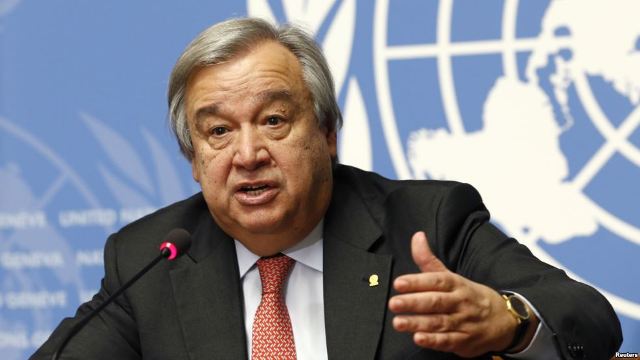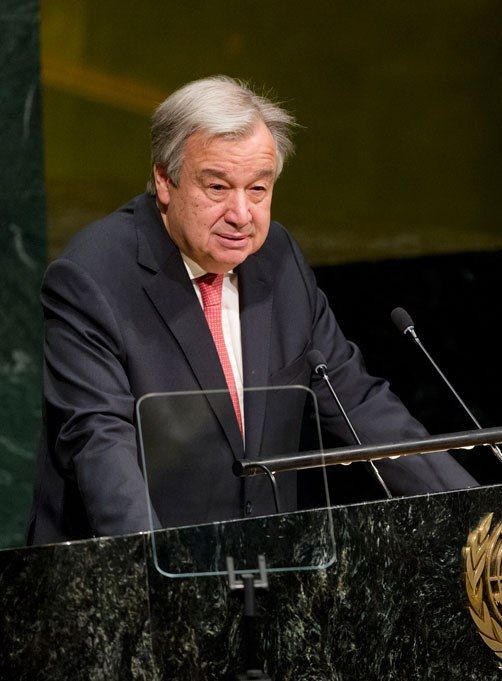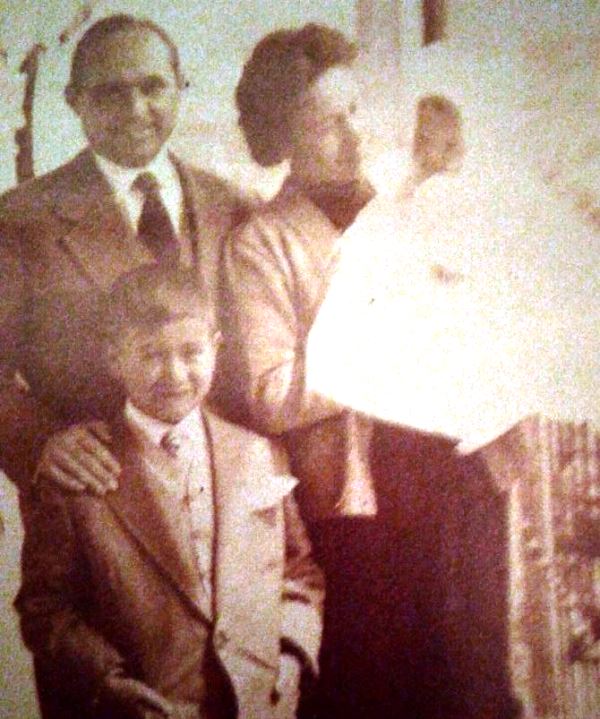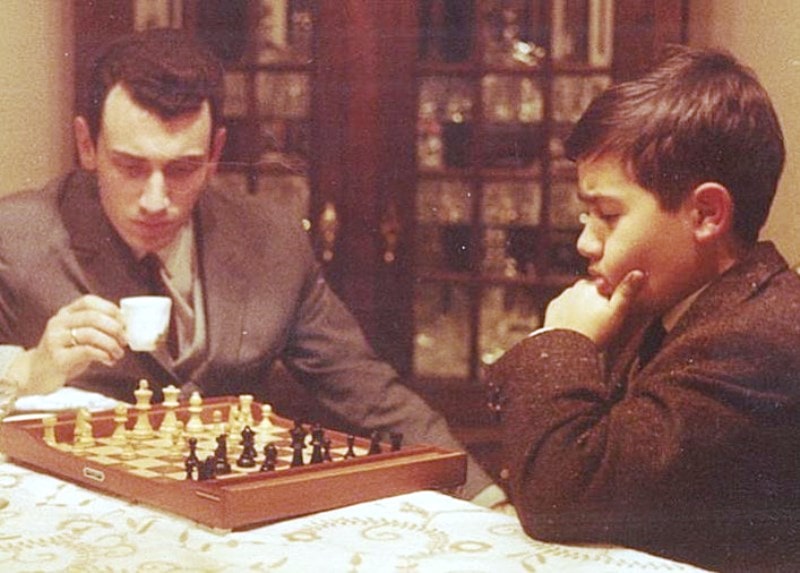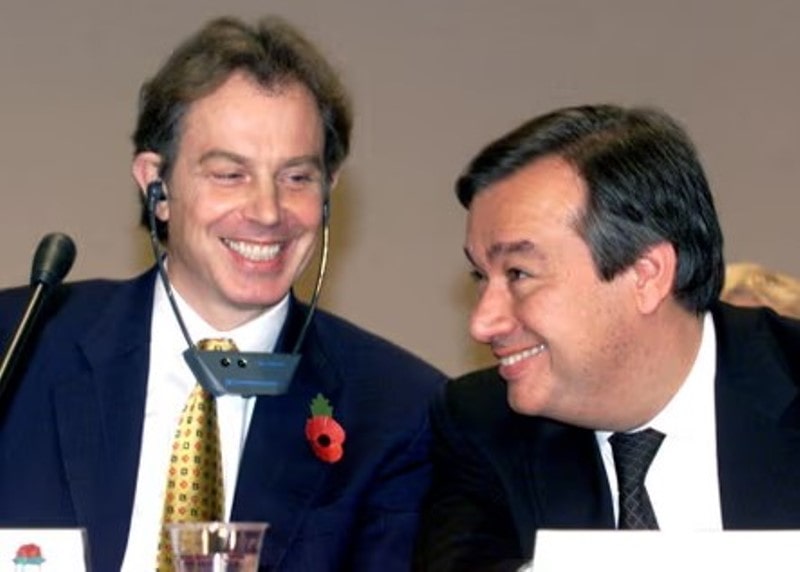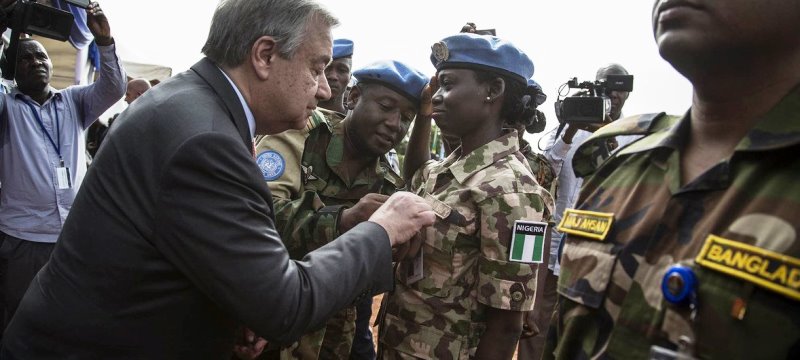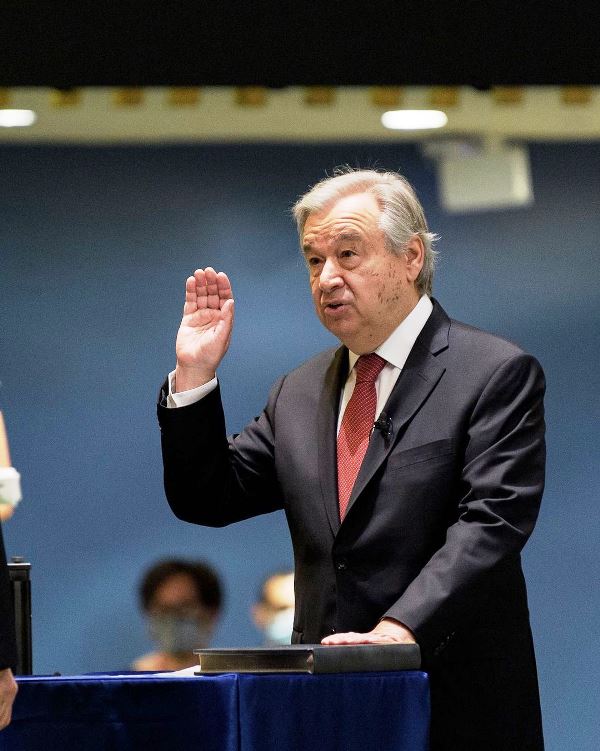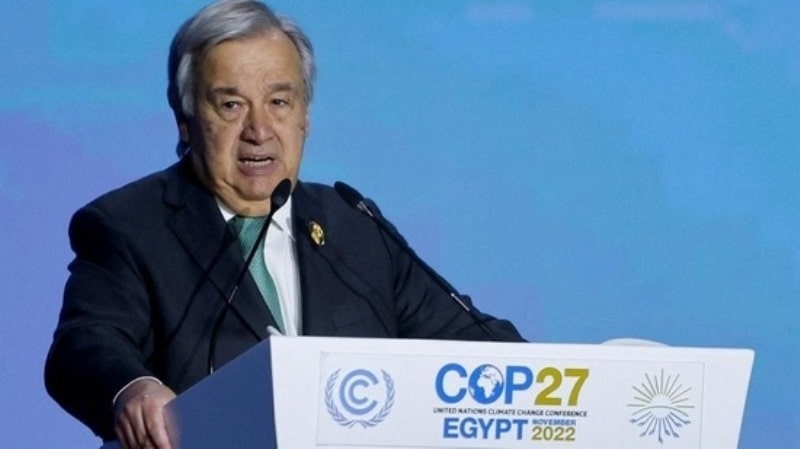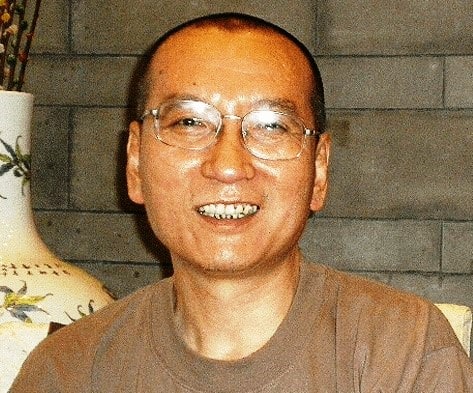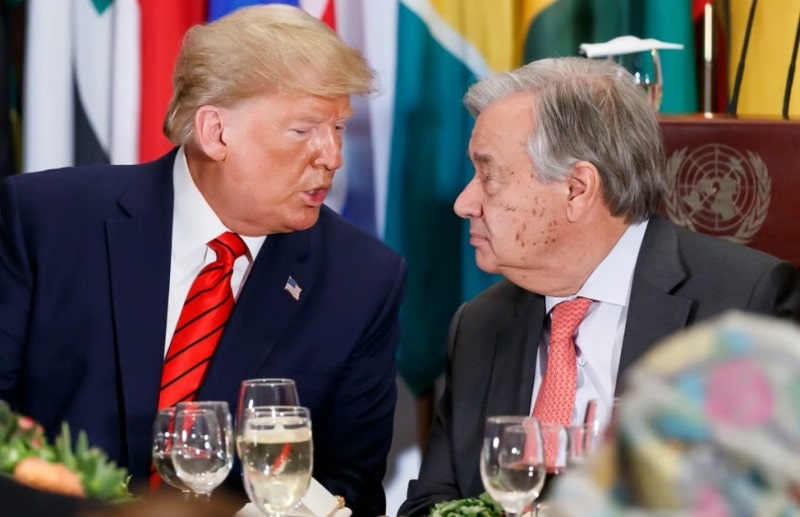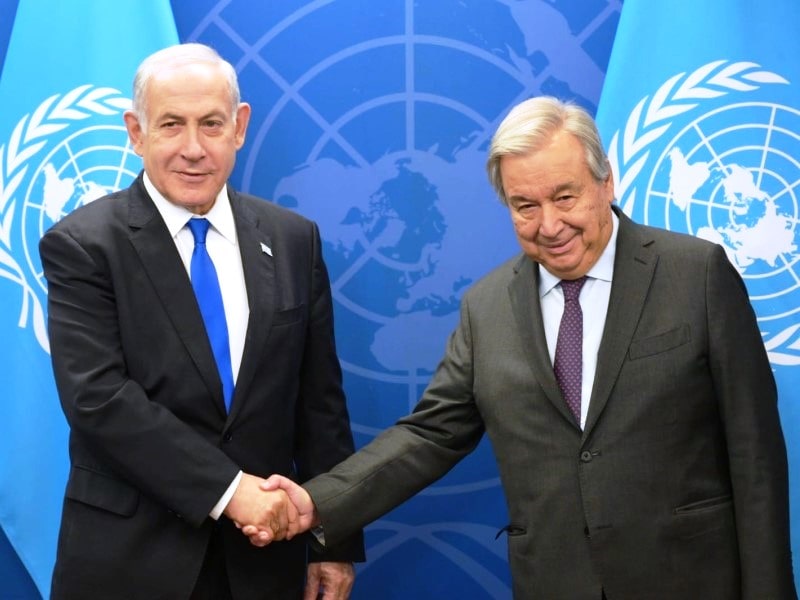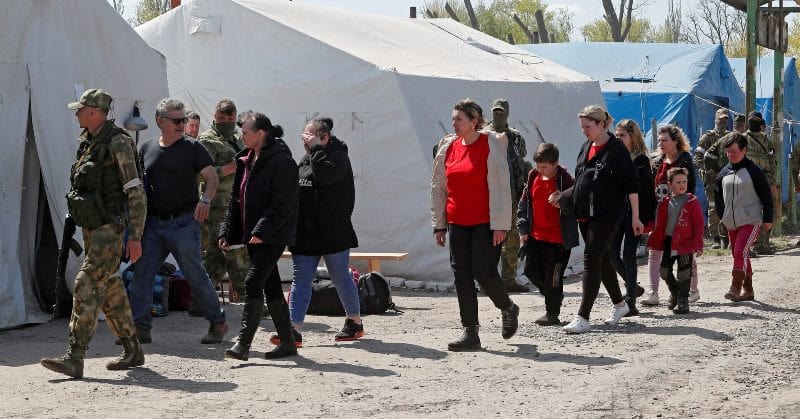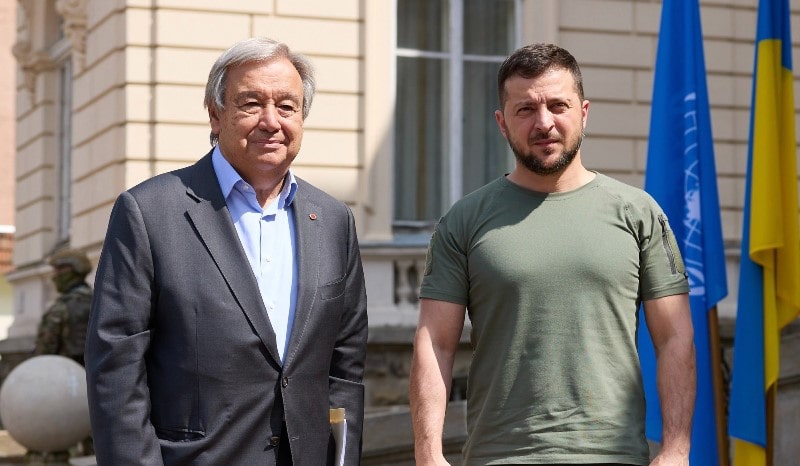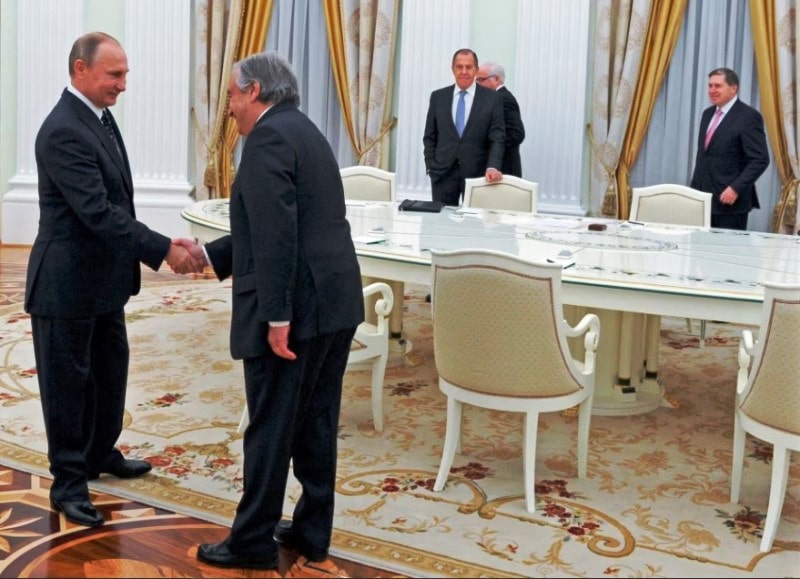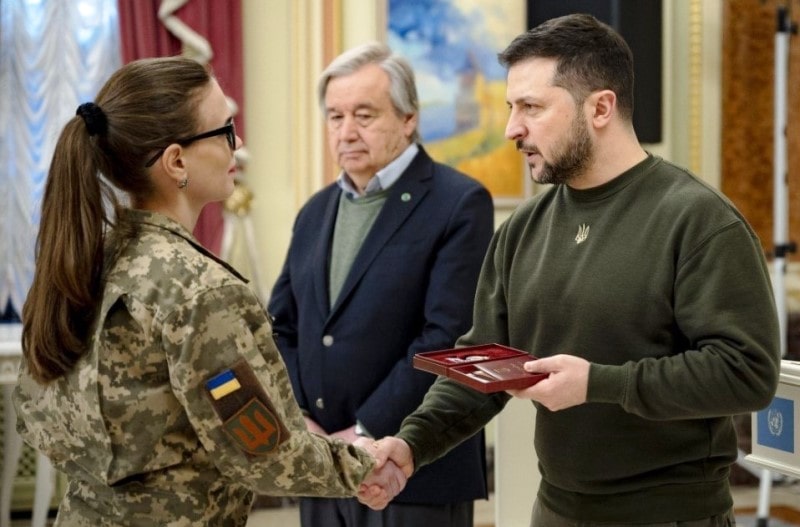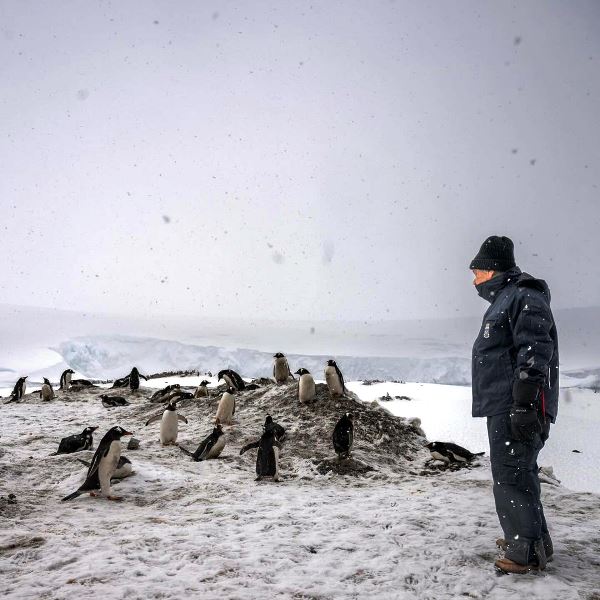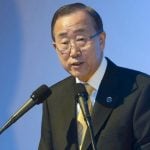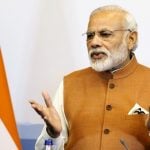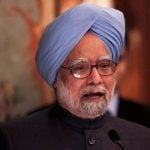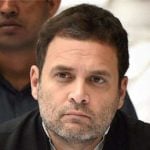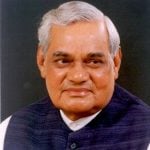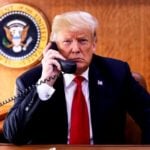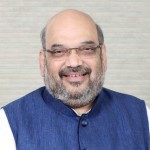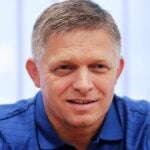António Guterres Age, Wife, Children, Family, Biography
| Bio/Wiki | |
|---|---|
| Full Name | António Manuel de Oliveira Guterres |
| Profession(s) | Politician, Activist |
| Famous for | Being the 9th Secretary-General |
| Physical Stats & More | |
| Height (approx.) | 5' 5" (165 cm) |
| Eye Colour | Grey |
| Hair Colour | Salt and Pepper |
| Politics | |
| Political Party | Socialist Party |
| Political Journey | • Ministerial assistant to Mario Soares (1974) • Member of Portugal’s parliament (1976-1983) (1985-1995) • Deputy for Lisbon and Castelo Branco in the National Parliament of Portuguese (1976–1995) • Member of the Parliamentary Assembly of the Council of Europe (1981-1983) • President of European Council's Commission for Demography, Migrations, and Refugees (1981-1983) • Leader of the parliamentary bench of the Socialist Party (1988) • Secretary-general of the Socialist Party of Portugal (1992) • One of the 25 Vice Presidents of the Socialist International (1992-1999) • Leader of the Opposition (23 February 1992 - 28 October 1995) • Prime minister of Portugal (October 1995-2002) • President of the Socialist International (1999-2005) • President of the European Council (January 1999 - July 2000) |
| UN Career | |
| Service Years | 2005-present |
| Major Designation(s) | • UN High Commissioner for Refugees (2005-2015) • Secretary-General of the UN (1 January 2017 - present) 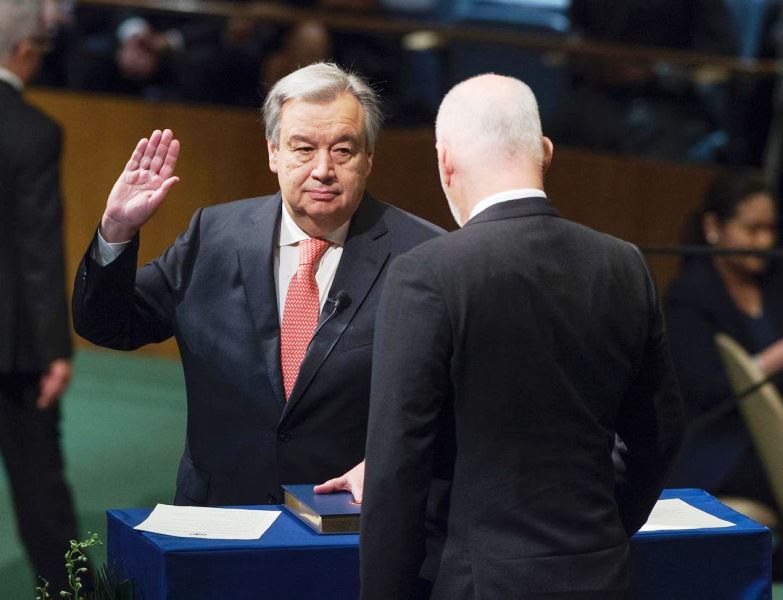 |
| Awards, Honours, Achievements | Medals and Awards • Grand Cross of the Order of the Southern Cross from Brazil (23 July 1996) • Grand Cross of the Order of Merit of the Republic of Poland (22 September 1997) • Grand Officer of the Medal of the Oriental Republic of Uruguay (10 December 1998) • Sash of Special Category of the Order of the Aztec Eagle from Mexico (2 July 1999) • Grand Cross of the Order of Honour from Greece (17 March 2000) • Grand Cross of the Military Order of Christ from Portugal (9 June 2002) • Grand Cross of the Order of Liberty from Portugal (2 February 2016) • Knight Grand Cross of the Order of Charles III from Spain (8 September 2000) • Grand Cordon of the Order of Leopold from Belgium (9 October 2000) • First Class of the Amílcar Cabral Order from Cape Verde (27 April 2001) • Grand Cross of the Order of Merit from Chile (30 September 2001) • Knight Grand Cross of the Order of Merit of the Italian Republic (3 December 2001) • Grand Cross of the National Order of Merit from France (4 February 2002) • Grand Cordon of the Order of the Rising Sun from Japan (4 April 2002) • Grand Collar of the National Order of Merit of Grão Pará (4 April 2002) • Grand Cordon of the Order of the Republic of Tunisia (4 April 2002) • First Class of the Order of Prince Yaroslav the Wise from Ukraine (4 April 2002) • Knight of the Collar of the Order of Isabella the Catholic from Spain (14 June 2002) • Personality of the Year by the Foreign Press Association in Portugal (2005) • Freedom Award (2007) 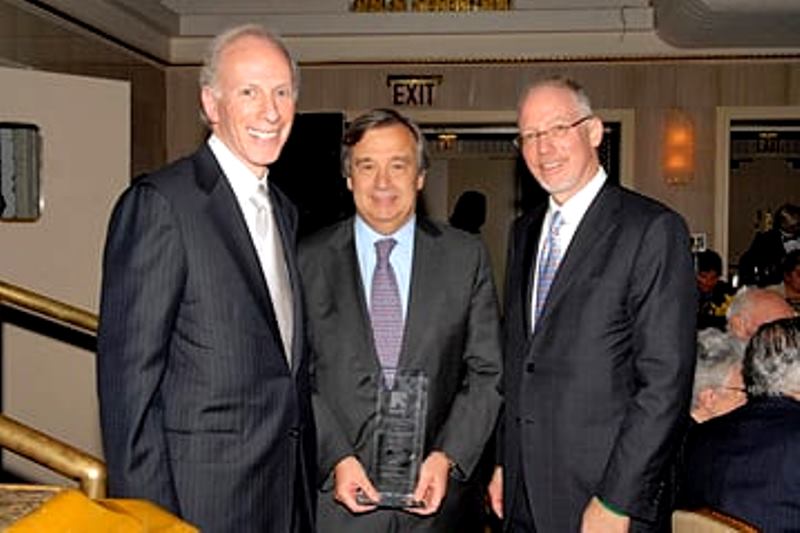 • Calouste Gulbenkian International Prize (2009) • W. Averell Harriman Democracy Award (2015) • The National German Sustainability Award (2015) • Charlemagne Prize (2019) 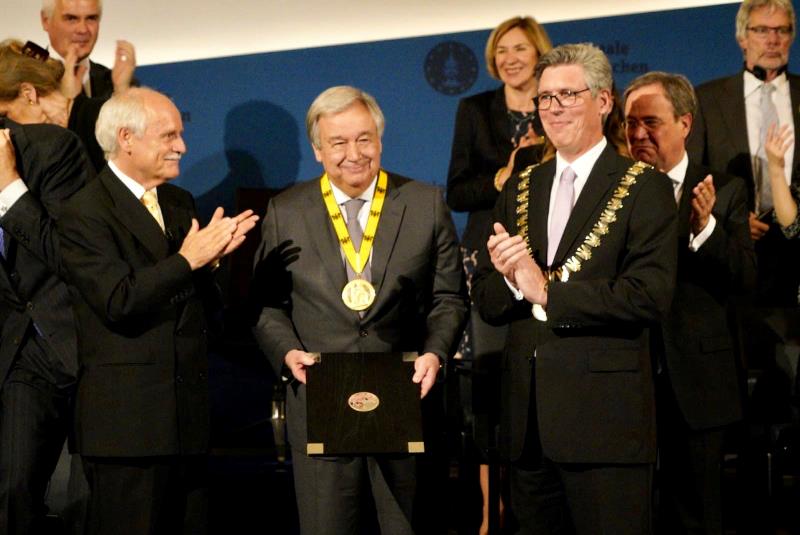 • Jubilee Medal for 25 years of Neutrality of Turkmenistan (11 December 2020) • Grand Cross of the Order of Merit of Niger (2 May 2022) 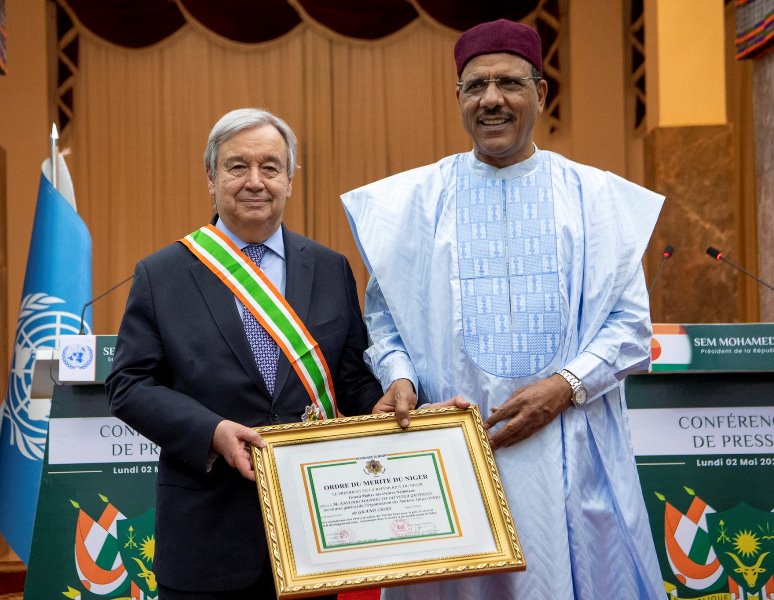 • Carlos V European Award (May 2023) 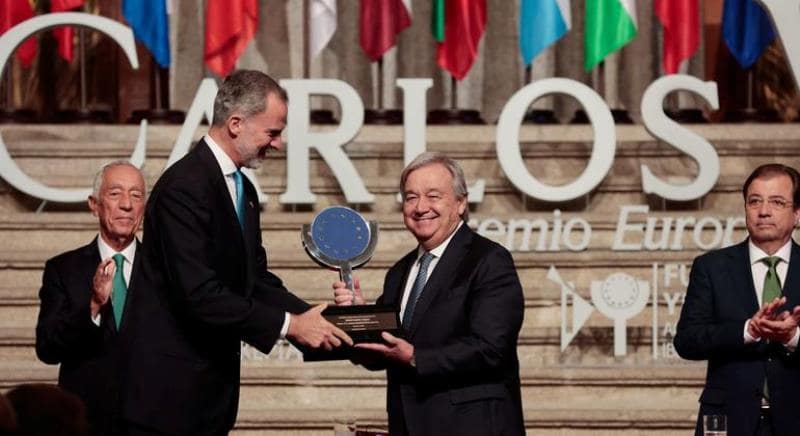 • Knight of the Collar of the Order of Charles III from Spain (7 November 2023) Honourary PhDs • Honorary Doctorate from University of Beira Interior (2010) • Honorary Doctorate from Meiji University (2014) 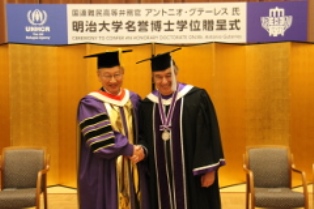 • Honorary Doctorate of Laws from Carleton University (2016) 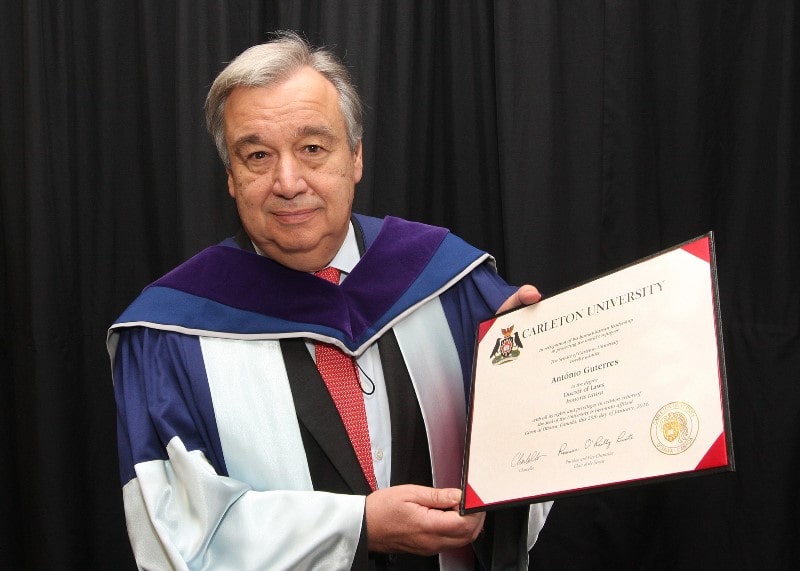 • Honorary Doctorate from University of Coimbra (2016) • Honorary Doctorate from European University of Madrid (2016) • Honorary Doctorate from University of South Carolina (2017) 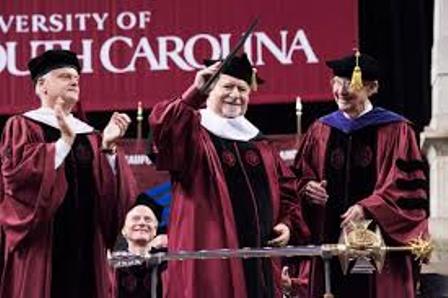 • Honorary Doctorate from the Instituto Superior Técnico (2019) 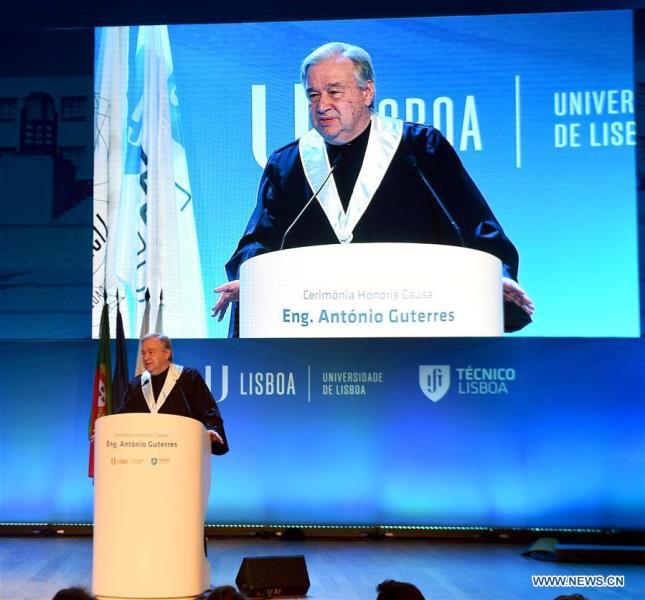 • Honorary Doctor of Humane Letters from The New School (2020) 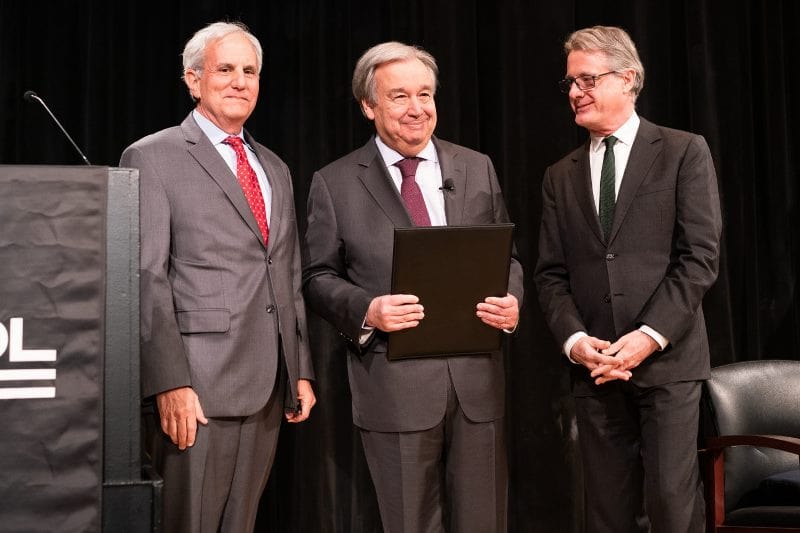 • Honorary Doctorate of Law from University of Cambridge (2021) 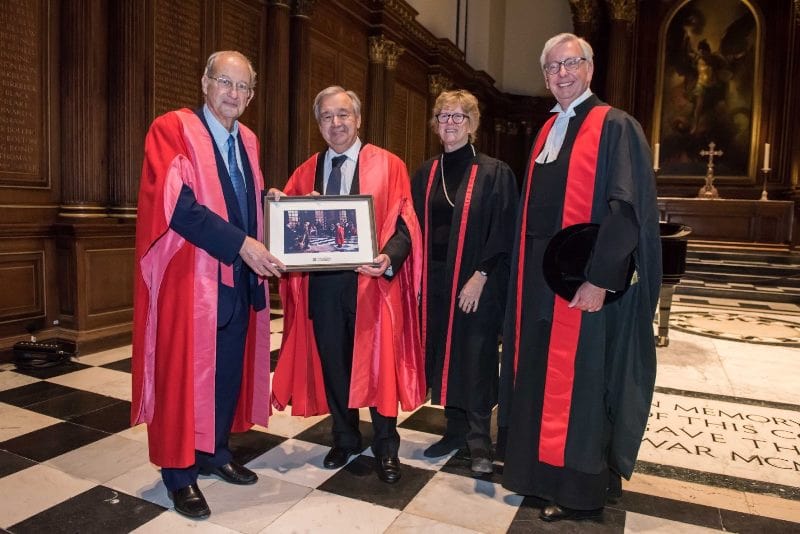 • Honorary Doctorate from Moscow State Institute of International Relations (MGIMO) (2021) 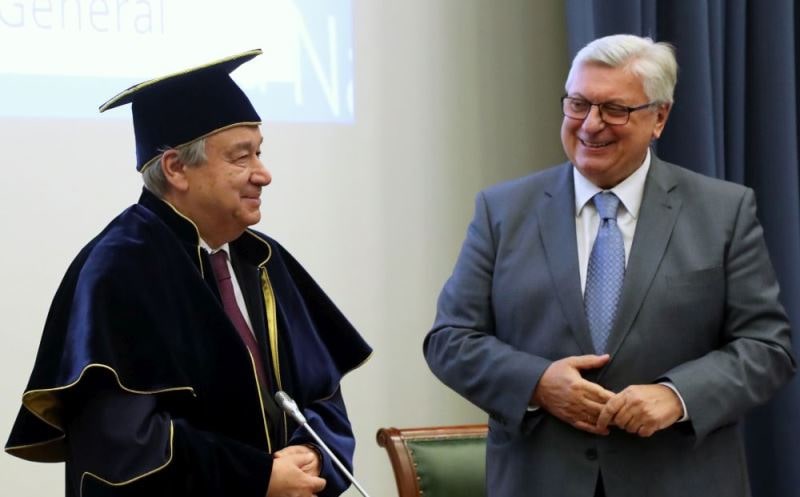 • Honorary Doctorate from National University of Córdoba (2022) 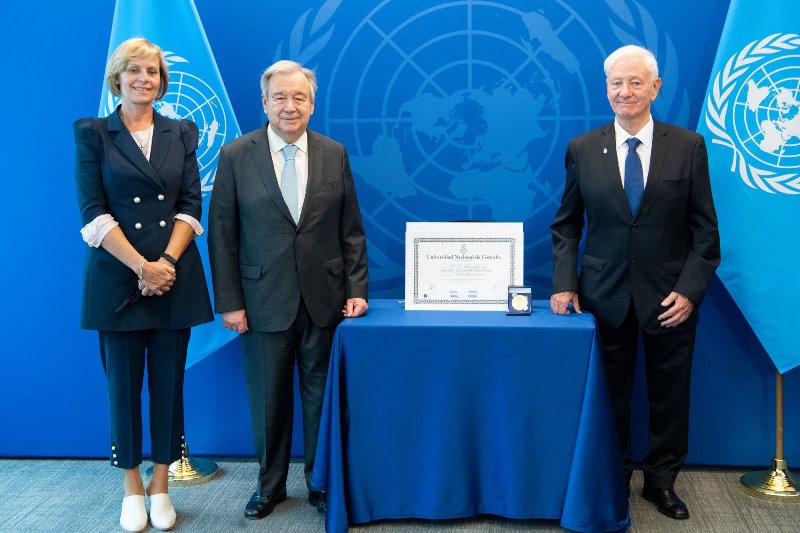 • Honorary Degree from Seton Hall University (2022) 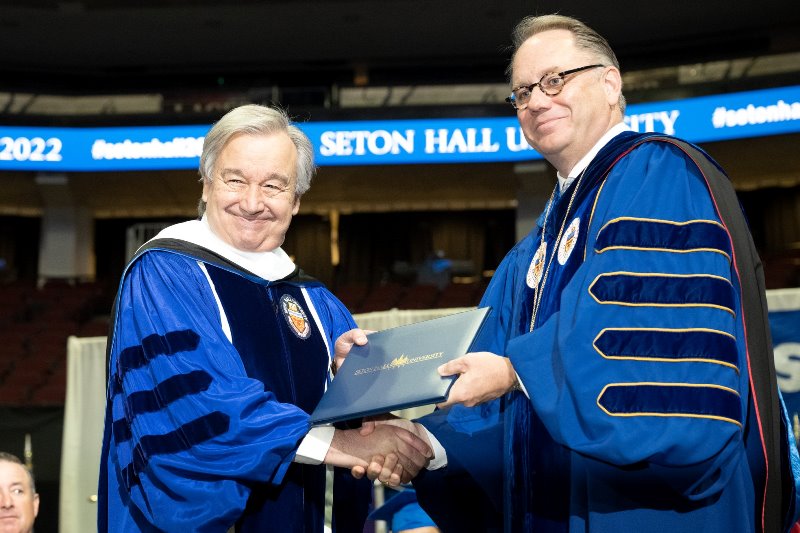 |
| Personal Life | |
| Date of Birth | 30 April 1949 (Saturday) |
| Age (as of 2024) | 75 Years |
| Birthplace | Parede, Cascais, Portugal |
| Zodiac sign | Taurus |
| Signature | 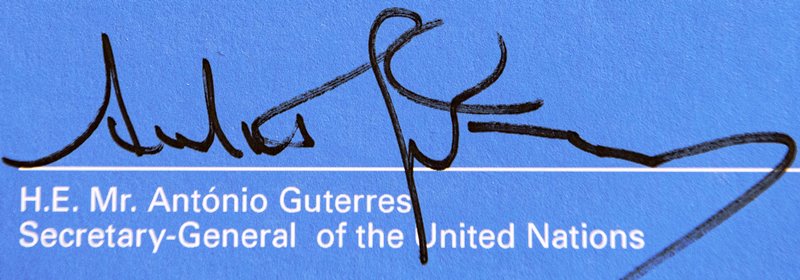 |
| Nationality | Portuguese |
| Hometown | Lisbon, Portugal |
| School | Camões Secondary School in Lisbon |
| College/University | Instituto Superior Técnico, University of Lisbon |
| Educational Qualification | Degrees in Physics and Electrical Engineering |
| Religion | Christianity (Roman Catholic) |
| Hobby | Reading, Playing Chess |
| Controversy | Accused of Helping His Son in Doing Business in Rwanda In 2018, several sources claimed that Guterres took advantage of his post of Secretary-General of the United Nations (UN) to help his son conduct business in the African country of Rwanda. He reportedly banned many Portuguese and European real estate agencies to favour his son. [1]Inner City Press |
| Social Media | • Instagram |
| Relationships & More | |
| Marital Status | Married |
| Marriage Date | • First Marriage Year, 1978 • Second Marriage Year, 2001 |
| Family | |
| Wife/Spouse | Luísa Amélia Guimarães e Melo (1946-1998)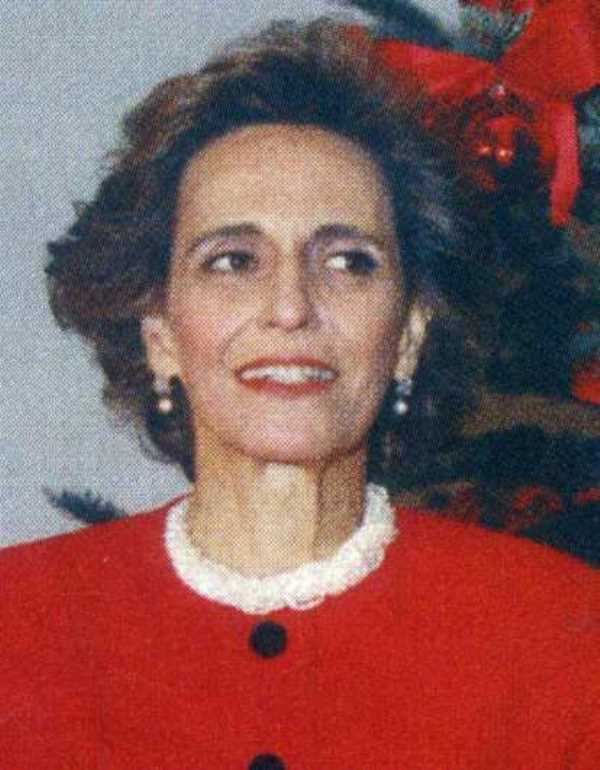 Catarina de Almeida Vaz Pinto (politician) 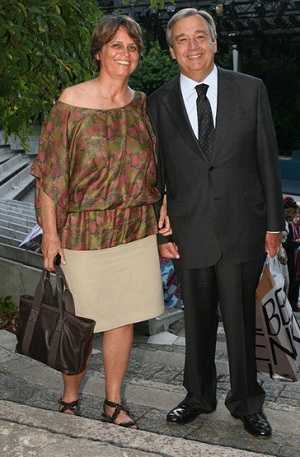 |
| Children | Son- Pedro Guimarães e Melo Guterres (businessman)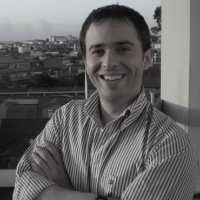 Daughter- Mariana Guimarães e Melo Guterres Note: He also has a stepson. |
| Parents | Father- Virgílio Dias Guterres (1913-2009)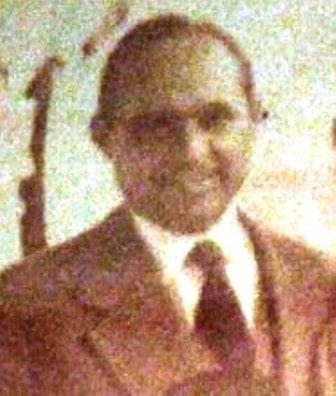 Mother- Ilda Cândida dos Reis Oliveira Guterres (1923-2021) 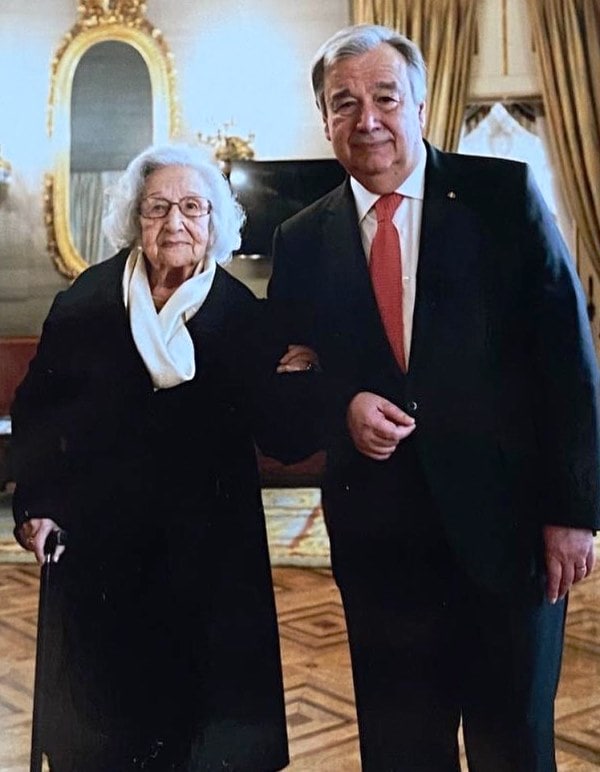 |
| Money Factor | |
| Salary (approx.) | $227,253 (as the Secretary-General) |
Some Lesser Known Facts About António Guterres
- Guterres moved to Lisbon, Portugal, after spending some time in his birthplace Parede.
- António Guterres developed the hobby of playing chess in his childhood.
- When he was a teenager, Guterres joined numerous Catholic groups in Portugal and helped the groups in social work.
- He started activism at a very young age. While studying in school he began advocating for the rights of the poor people living in slums in Parede.
- In 1965, he completed his secondary education and won the “Prémio Nacional dos Liceus” for being the best student in the country.
- After completing his graduation, Guterres started working as an assistant lecturer at Instituto Superior Técnico in Lisboa, Portugal. There, he taught Telecommunications Systems and Signals Theory.
- It was during his time in the college that he joined a political organisation named Grupo da Luz, There, he met popular Portuguese personalities such as Marcelo Rebelo de Sousa, Carlos Santos Ferreira, and Father Vítor Melícias.
- In 1972, Guterres married Luísa Amélia Guimarães e Melo. However, in 1998, his wife died of Cancer. Later he married Catarina de Almeida Vaz Pinto in 2001.
- He became a part-time member of the Portuguese Socialist Party while working as a teacher.
- During his youth days, Guterres grew a thick moustache as a tribute to Salvador Allende, a left-wing Chilean politician.
- Guterres became a permanent member of the party and left teaching before the beginning of the Carnation Revolution which saw the removal of the dictator Marcelo José das Neves Alves Caetano in 1974.
- During the 1974 revolution, he held many important posts in the party and became a prominent political figure.
- Thereafter, he became a member of a negotiating team that engaged in several rounds of talks with the core committee of the European Union (EU), seeking Portugal’s entry into the EU.
- In 1986, Portugal became a member of the EU by signing the Single European Act (SEA).
- Guterres is very familiar with India because his first wife was born in Goa. Due to this, he visited South Asia many times.
- In 1991, after many refugees from Islamic nations entered Portugal as refugees seeking asylum, he established the Portuguese Refugee Council, a non-governmental organisation working to give equal rights to refugees.
- He took over the post of the Social Party’s Secretary-General in 1992 after its third consecutive loss at the Assembly of the Republic (Portugal) elections.
- Under his leadership, the Socialist Party brought in some major ideological reforms to focus more on religion, especially Catholicism, Europeanism, pragmatism, and centrism. This led to the party adopting a more liberal approach.
- He won the General Election of Portugal in 1995 and defeated Fernando Nogueira.
- Soon after becoming the Prime Minister of Portugal, Guterres worked on improving the economic condition of the country.
- He enforced privatisation, decentralisation, and liberalisation as a result of which trade of Portugal increased manifolds with the EU. He referred to them as the “Third Way.”
- Even though his government had a pro-LGBTQIA+ stand before the 1995 elections, he, in an interview, claimed that he was against “homosexuality,” and it was “something that bothered him.” He further added,
There are moments in the life of a country when the ethics of responsibility have to be placed above each person’s personal convictions.”
- Guterres’ slogan for the 1995 elections was “heart and reason.”
- From 1996 to 1999, the Guterres-led administration privatised more than 29 government-owned companies.
- In 1998, he became President of Expo 98 in Lisbon, celebrating 500 years of Vasco da Gama’s voyage to find Goa.
- In the same year, during the debate on whether abortion should be legalised in Portugal, Guterres raised his voice against its legalisation. Later, a referendum was conducted in which people voted against the legalisation of abortion.
- The government, in 1998, organised another public vote over the regionalization of the mainland. However, the citizens of Portugal rejected this notion and voted against it.
- In the same year, his first wife Luísa fell ill and was admitted to a hospital in London in serious condition. Guterres used to work on the weekdays in Portugal and used to spend the weekends with his ailing spouse.
- By 1999, the country’s economic growth declined due to the onset of the global recession.
- Despite the recession, Portugal was one of the best-performing EU nations and was mentioned in the list of participants of the Economic and Monetary Union (EMU).
- To make it easier for Portuguese citizens to access the services provided by the government, he introduced the Ministry for State and Public Administration Reform. Under it, the government introduced better internet connectivity at cheaper rates as well as improved telecommunication.
- He led a successful political movement to request the United Nations (UN) to send a peacekeeping force to East Timor in 1999 after terrorists, backed by Indonesia, attacked and took over it.
- In June 1999, the United Nations Mission in East Timor (UNAMET) was established to seek a peaceful political settlement. The mission was in effect till November 1999.
- During his tenure as the Prime Minister, Guterres worked on handing over the control of Macao, a colony of Portugal, to China. This marked the end of nearly 600 years of the European colonial era.
- Later, China and Portugal signed a deal according to which China would not impose Mandarin on the residents of Macao and Porutguese would remain the official language of Macao.
- His popularity in Portugal fell drastically by 2001 as the citizens believed that he spent a lot of time outside the country dealing with international issues rather than focusing on economic issues. Internal party conflicts and the collapse of the Hintze Ribeiro Bridge also played a vital role in his political downfall.
- He resigned from the post of PM in 2001 after his party faced defeat in a local election. According to him, he quit so as to avoid Portugal getting stuck into a “political swamp.”
- He was elected as High Commissioner at the United Nations High Commissioner for Refugees (UNHCR) by the United Nations General Assembly in 2005.
- During his tenure as High Commissioner for Refugees in the World’s largest humanitarian organisation, Over 60 million refugees and displaced people were assisted.
- He helped the United Nations (UN) improve its response time to address conflicts. He also reduced the staff at the UNHCR in Geneva to decrease the cost incurred for conducting administrative tasks.
- At the time of the end of his tenure, the organisation had more than 10,000 employees working in 126 countries.
- Guterres criticised the People’s Republic of China (PRC) for their decision to deport the people who escaped from the Democratic People’s Republic of Korea (DPRK) back to the country in March 2006.
- In 2007, he criticised the Western media for only concentrating on the Iraqi refugee crises after the Iraq War of 2003 and not on the much larger refugee crises in the Central African Republic and the Democratic Republic of the Congo.
- In 2012, he and Angelina Jolie, as his special envoy, visited many European, Latin American, and Asian countries to represent UNHRC at diplomatic levels.
- In June 2013, started an assistance program worth US $5 billion to help the refugees from Iraq and Africa. The money was also used to provide the Syrians with relief materials because of the Syrian Civil War.
- In May 2015, his tenure as the High Commissioner of the UNHCR for another six and a half months by the then UN Secretary-General Ban Ki-moon. The UN extended his tenure due to the pressure of Europe after 1.3 million migrants sought refuge in the EU due to conflicts in the Middle East.
- On 31 December 2015, He left office, having served the second-longest term as High Commissioner in the organization’s history, after Prince Sadruddin Aga Khan.
- As per sources, Guterres asked Ban to extend his service tenure for a year. However, Ban did not allow an extension.
- He was appointed to an advisory committee to the President of Portugal in 2015.
- Guterres submitted his nomination as Portugal’s candidate for the 2016 UN Secretary-General selection on 29 February 2016.
- On 5 October 2016, a pre-election was conducted at the United Nations Security Council (UNSC). In the elections, out of 15 members of the UNSC, 13 voted in his favour.
- In the same year, while campaigning for the post of general secretary, Guterres referred to Anders Kompass’ claims of peacekeepers indulging in sexual abuse of the locals in the Central African Republic (CAR) and said that such instances need to be addressed in the UN. Anders was earlier removed from the UN for his claims by Ban.
- He took over the office of the UN Secretary-General on 1 January 2017 and became the ninth Secretary-General to hold the office.
- Shortly after taking over the office, Guterres had to tackle the challenge of addressing the outbreak of a cholera pandemic caused by UN peacekeepers from Nepal who were infected. However, Guterres received criticism for his inactivity on the issue and calling it a “particularly complex question.”
- He later announced that the UN would contribute $400 million to Haiti to fight the disease. However, the UN could only manage to give $10 million by mid-2017.
- After Guterres took over as the Secretary-General, there were expectations that he would improve its functioning, which had received a lot of criticism during Ban Ki-moon’s tenure as the Secretary-General.
- In April 2017, he oversaw the implementation of the New Urban Agenda, and later, established an independent council of eight people to work on improving the functioning of the United Nations Human Settlements Programme (UN-Habitat).
- In June 2017, Guterres criticised the Donald Trump-led US administration for proposing a reduction in the funding to the UN, citing that it would “create an unsolvable problem to the management of the UN.” He also asked the US and Russia to de-escalate tension in Syria.
- He also criticised the United States for backing off from the 2017 Paris Climate Agreement. He warned the US “that if the United States disengages from many world issues it will be replaced and that won’t be good for America or the world.”
- In 2017, he criticised the Chinese Communist Party (CCP) for attacking and arresting the Chinese human rights activist and Nobel Peace Prize winner Liu Xiaobo, who died in the judicial custody of the police in July 2017.
- Guterres passed a resolution in the UN in November 2017 against the decision of the UAE to place a military blockade around Yemen. He called the conflict a “stupid war” and said that it negatively impacted the UN’s ability to supply humanitarian aid to Yemen, making Yemen’s condition even worse.
- In December of the same year, the secretary-general criticised Donald Trump’s decision to recognise Jerusalem as the capital of Israel. Guterres believed that such a “unilateral” decision of a world power could cause disturbance in the Middle East.
- In August 2018, the UN established an investigative council to look into the instances of aerial bombardment of civilian areas in Yemen by the Saudi-led coalition forces.
- During the 73rd United Nations General Assembly (UNGA) in New York, Guterres discussed how Artificial Intelligence (AI) could impact the labour market. He also mentioned the possibility of implementing a Universal Basic Income.
- He has also received criticism from many international human rights watch groups for not taking any action on China over their alleged human rights violations such as keeping approximately 2 million to 3 million Uyghurs Muslims in re-education camps in Xinjiang. Kenneth Roth, chief of the Human Rights Watch, in an interview, criticised him and said,
He has been notably silent on one of the most important, .. the most brazen human rights abuses, .. because he is worried about upsetting the Chinese.”
- He has often supported criminalising the destruction of the environment. He once led the international movement of including “ecocide” (from homicide) as a punishable offence that can be tried in the International Criminal Court.
- He was one of the leaders of the Global Pact for the Environment, which 142 UN members adopted.
- In September 2019, when Prime Minister Benjamin Netanyahu revealed the objectives of Israel to capture the West Bank, Guterres passed a resolution criticising him for “igniting” the already volatile relations between Israel and Palestine.
- After his election to the post of secretary-general for the second time, war between Ukraine and Russia broke out. This led to Guterres visiting both, Russia and Ukraine, to seek a temporary ceasefire for evacuating non-combatants from the war zones. The UN established many refugee camps.
- He received praise from the international community for concluding a pact with Russia to allow the use of the Ukrainian ports to sell grains to the world. Russia’s permission was needed because it had placed a naval blockade around Ukrainian ports.
- In April 2023, an intelligence report from the United States Central Intelligence Agency (CIA) was leaked according to which the US was trying to gather more information on Guterres’ visits to the Russian Federation due to his very casual approach towards Russia in addressing its invasion of Ukraine. The report read,
Guterres emphasised his efforts to improve Russia’s ability to export, even if that meant working with sanctioned Russian entities or individuals.”
- In May 2023, he released a statement in which he criticised Russia and Ukraine saying that both countries are confident of their victory over one another and hence won’t sign a peace treaty to end the war.
- In the same year, Guterres asked the UN’s core committee to consider establishing a council aimed at studying the positive and negative impacts of AI. This move of his was supported by many countries.
- Later, the Israeli Ambassador to the UN asked Guterres to leave his post of secretary-general after he criticised Israel for bombing Hamas in Palestine and said that the attack took place due to Israel’s oppression of the Palestinians. Guterres reportedly said,
It is important to also recognize the attacks by Hamas did not happen in a vacuum. The Palestinian people have been subjected to 56 years of suffocating occupation. They have seen their land steadily devoured by settlements and plagued by violence; their economy stifled; their people displaced and their homes demolished.”
- He later issued a statement claiming “misinterpretation” of his words by the media.
- A report leaked from the Pentagon in 2023 according to which Guterres was unhappy with the use of his photo with Zelensky while Zelensky was awarding medals to the Ukrainian soldiers. Reportedly, Guterres was not informed about the event that was to take place and Zelensky mentioned in the photo caption that Guterres congratulated many Ukrainian soldiers on their achievement.
- He is multi-lingual. Other than Portuguese, he is fluent in English, French, and Spanish as well.
- He is a member of the Club de Madrid, which is an organisation encompassing many former leaders from different countries advocating for democracy.
- According to Portuguese journalists, Guterres, as the Prime Minister, often stayed away from the media and did not allow any media person to take his photos or interview him.
- He was named “the talking pickaxe” by his political rivals in Portugal due to his superior speech capabilities through which he gained an upper hand over his opponents.
- In May 2024, he visited Antarctica and from there he spoke about global warming causing the melting of the Arctic glacier.
References/Sources:

